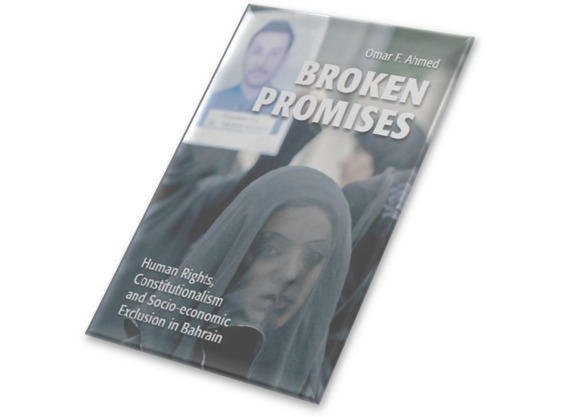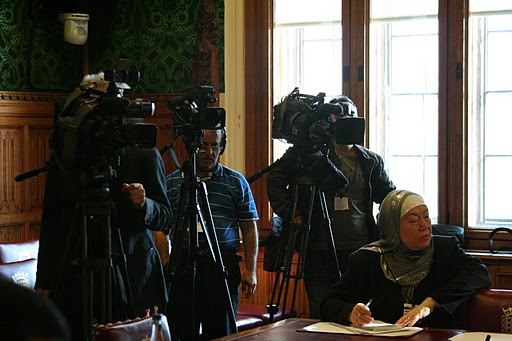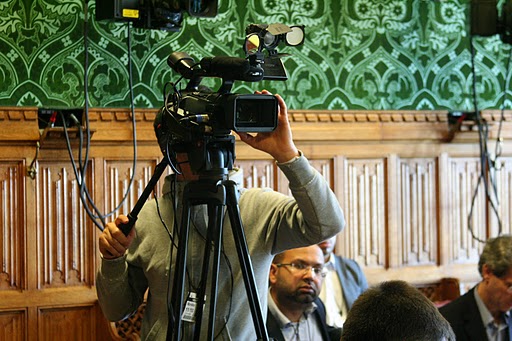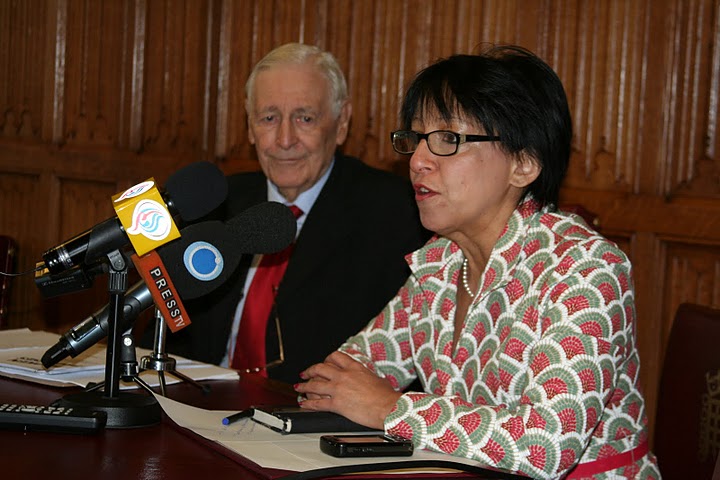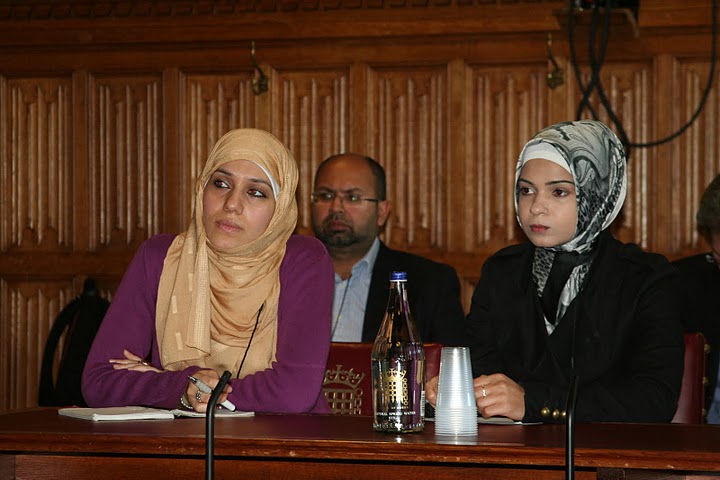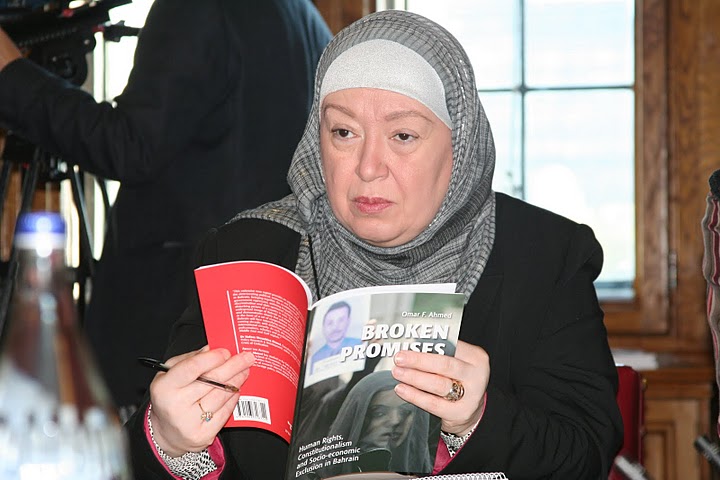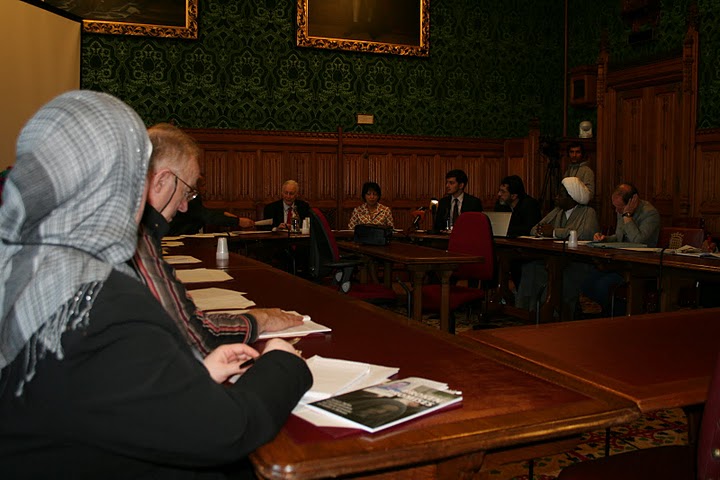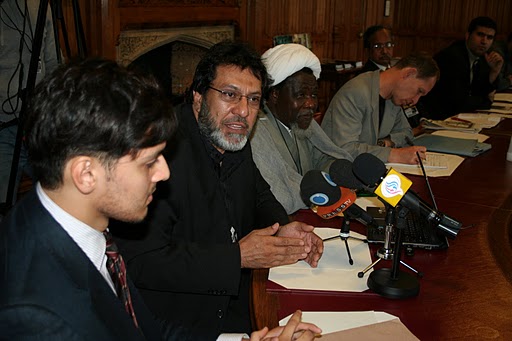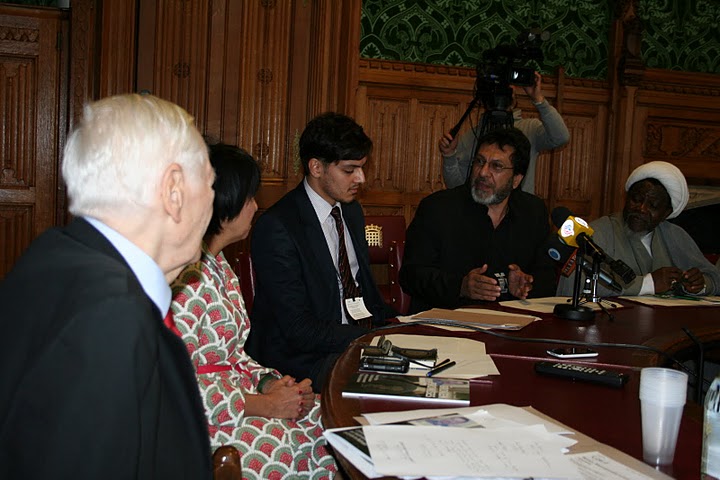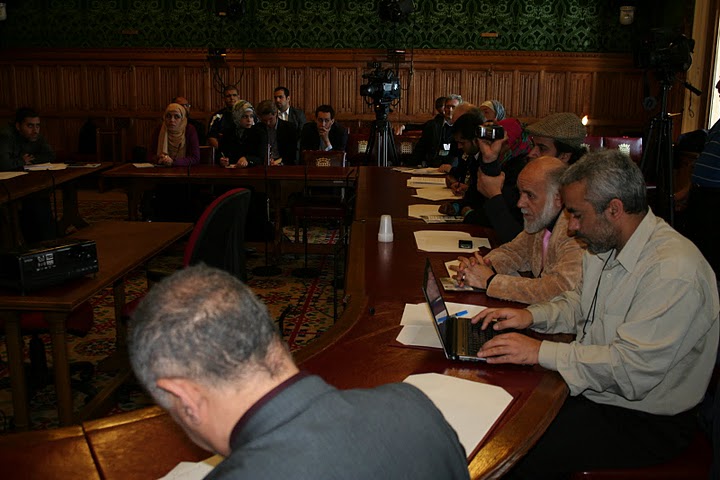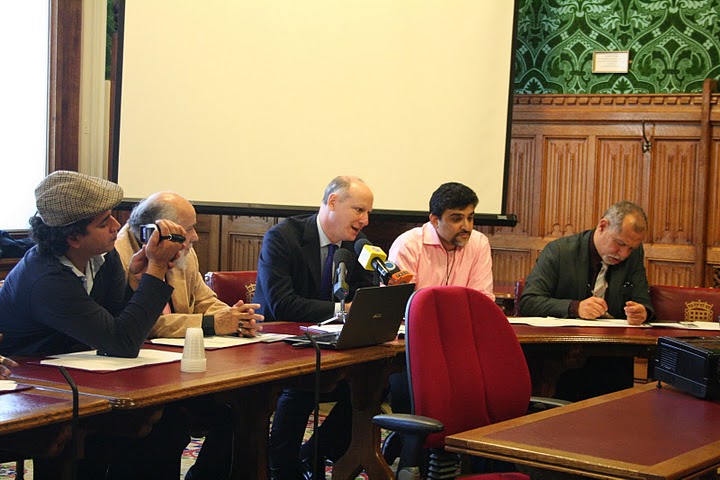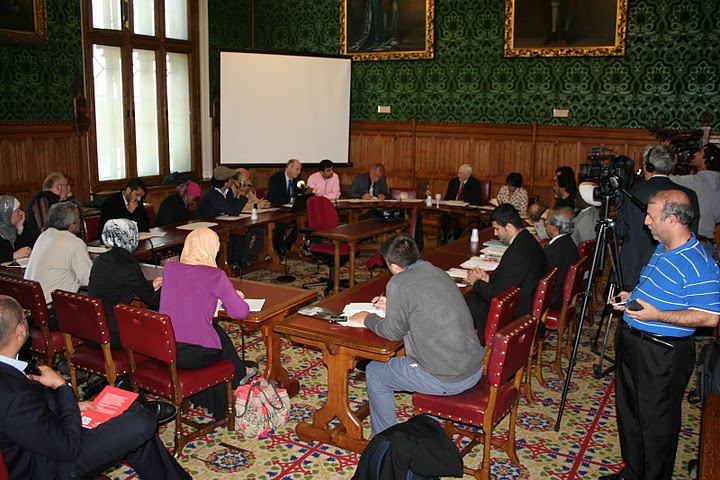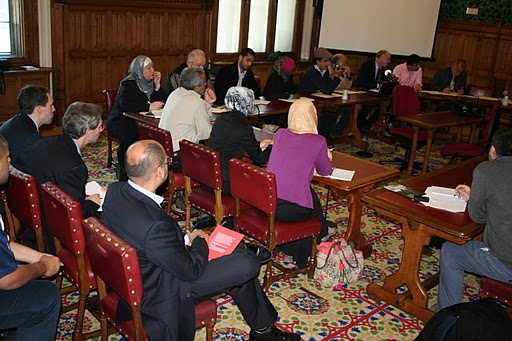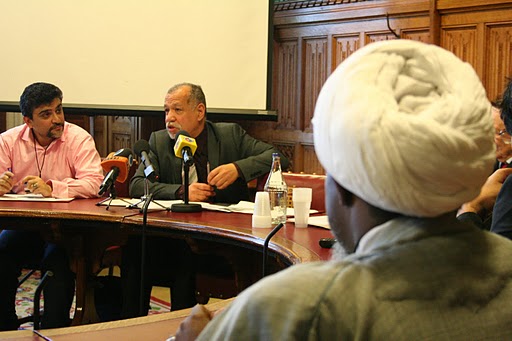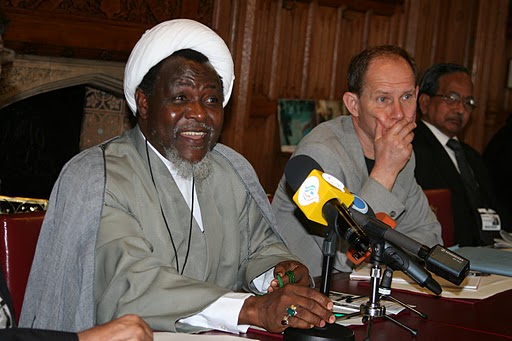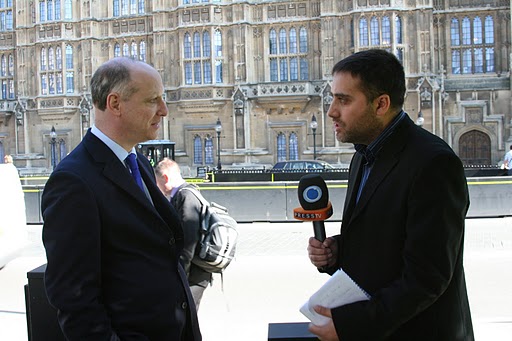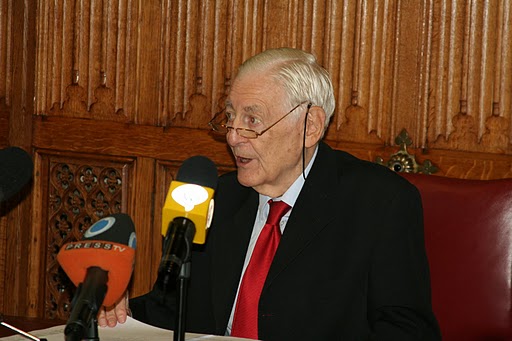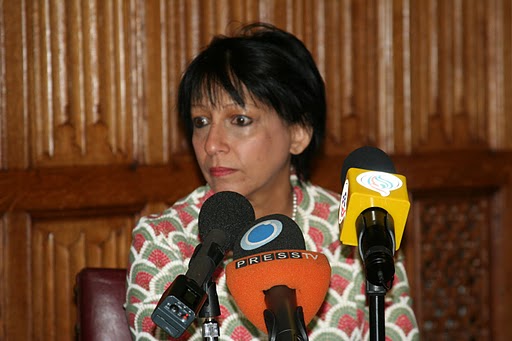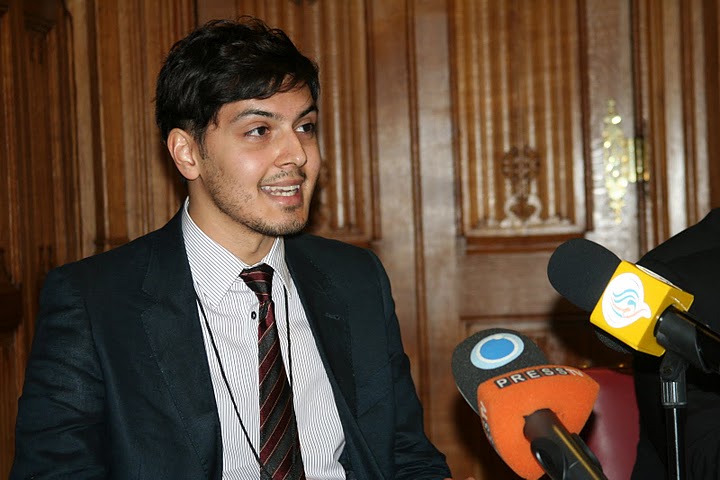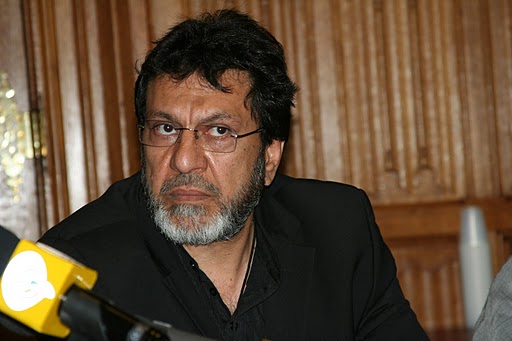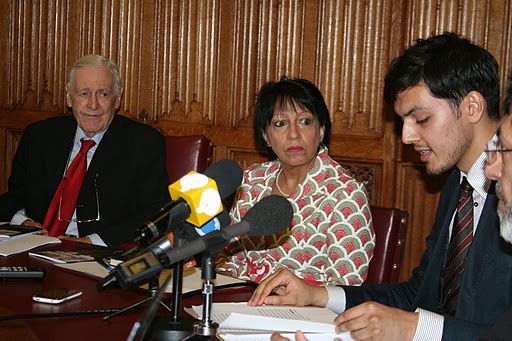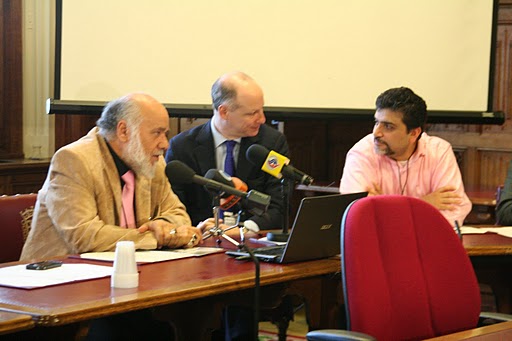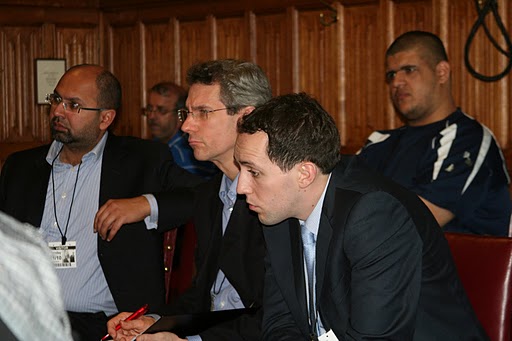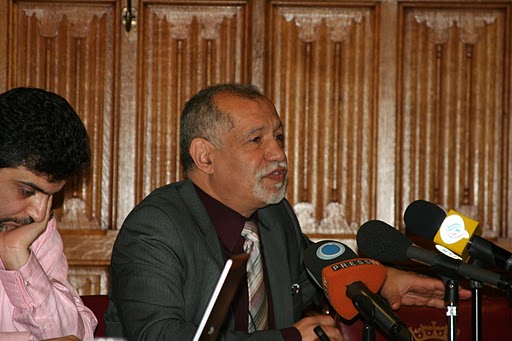The IHRC’s latest report on Bahrain, called ‘Broken Promises: Human Rights, Constitutionalism and Socio-economic Exclusion in Bahrain’, by Omar F. Ahmed, was launched at a Press Conference at the House of Lords on Monday 11 October, 2010.
Buy the report here, or download it for free here.
The event, hosted by Lord Avebury and the Bahrain Centre for Human Rights, focused on the Report’s confirmation of the Bahraini state’s use of torture against political dissidents. This is an issue which was particularly topical as the country was currently in the midst of a massive crackdown against political opposition and civil society activists in the run up to the elections scheduled to take place on 23 October. Read more and watch Press Tv coverage below the photo gallery with photos copyright and courtesy of The Bahrain Center for Human Rights.
Omar Ahmed, the author of the report, spoke at the launch alongside IHRC Chair Massoud Shadjareh and barrister Osama Daneshyar who has frequently visited Bahrain as a legal observer for IHRC. Omar Ahmed’s report is based on research into the situation in Bahrain done during 2009-10, including trips by IHRC observers to monitor politically sensitive trials in the country. Other contributors to the panel included Mu’allim Ibrahim el-Zakzaky from the Islamic Movement of Nigeria, Saeed Shehabi from the Bahrain Freedom Movement and Baroness Faulkener.
In the report, Ahmed argues that “the reign of the current ruler, King Hamad al-Khalifa has represented a failure of constitutionalism and a resurgence of monarchical cronyism, institutionalised by state apparatus and enforced through brutal deployment of the security forces.”
In doing so, Bahrain has been unsuccessful in preventing social-economic exclusion. The report discusses exclusion of the wider general population, in addition to the more specifically targeted institutional discrimination against its Shia majority.
Additionally, the report presents the view that, linked with social exclusion, there is a continuing trend of human rights violations within the country, “carried out by the Government and the country’s state institutions, predominantly its security and intelligence services.”
The abuses that have been emphasised in the report are, firstly, unwarranted restrictions on the freedom of expression, assembly and association. Secondly, using information obtained through human rights groups, the report accuses authorities of arbitrarily detaining opposition figures and human rights activists, and subjecting numerous prisoners to torture.
Dr. Nafeez Mosaddeq Ahmed, Executive Director of the Institute for Policy Research and Development, and a lecturer in International Relations at the University of Sussex, describes the report as “an unparalleled overview of the deteriorating political, economic and human rights conditions in Bahrain, bringing together the escalating trends of government repression, widening inequalities, institutional discrimination and state-sponsored sectarian tensions into a disturbing picture of a country in crisis.”
See also:
Briefing Note – Bahrain (24 September 2010)
Report of the Trial Monitor in the Ma’ameer and Adary Park Cases, Bahrain, 2010 (8 September 2010)

